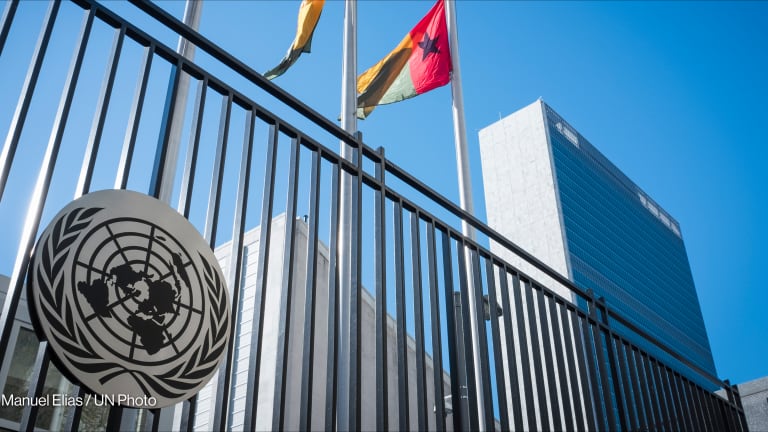The U.N. General Assembly goes virtual, a power struggle hinders malnutrition efforts, and USAID staffers warn of “irreversible” damage from a political appointee. This week in development:
The United Nations General Assembly is underway in New York, sort of. For the first time in the international organization’s 75-year history, the annual gathering of global leaders is taking place online, due to the COVID-19 pandemic. Heads of state have delivered their high-level speeches via prerecorded video messages, swapping the in-person drama for a rare technical glitch, and sparing midtown Manhattan from their motorcades. U.S. President Donald Trump kept his message short — and aligned with his presidential campaign’s anti-China rhetoric. Chinese President Xi Jinping defended multilateral cooperation and announced that China will be carbon neutral by 2060. French President Emmanuel Macron made a bid for global leadership to countries eager to avoid getting caught up in the U.S.-China geopolitical rivalry. The pandemic that has disrupted the U.N.’s anniversary celebration has also featured heavily in this year’s proceedings, with leaders including South African President Cyril Ramaphosa and U.N. Secretary-General António Guterres pushing for a global response that does not leave low- and middle-income countries behind. Guterres has repeatedly urged member states to extend the financial rescue packages that wealthier countries have made available for themselves to lower-income countries, including through an expansion of debt relief agreements and by mobilizing more financial resources. That should include by joining and financing the global vaccine access initiative, known as COVAX, which Guterres told Devex has so far received less than $3 billion, but which requires $35 billion.
A power struggle between two U.N. agencies is hindering efforts to improve malnutrition programs at a time when less than 25% of the roughly 47 million children suffering from wasting around the world are receiving treatment. UNICEF and the World Food Programme currently share responsibility for different aspects of global wasting treatment. UNICEF, the lead coordinating agency, treats severe acute malnutrition. WFP treats moderate acute malnutrition. The parallel systems prevent the agencies from delivering a continuum of care to malnourished children and have led to a dispute over which agency should have the authority to procure ready-to-use therapeutic foods. Officials from both agencies agree the arrangement is inefficient, but they differ over how best to resolve it. “It’s a power struggle, plain and simple — as old as time itself. Like most power struggles, it's really about fortune and fame,” Will Moore, president at the Eleanor Crook Foundation, told Devex. In March, U.N. agencies released the Global Action Plan on Child Wasting, which is meant to provide a path forward to reform, but some experts have criticized the document for lacking clear, actionable steps that the agencies could take to improve the system.








